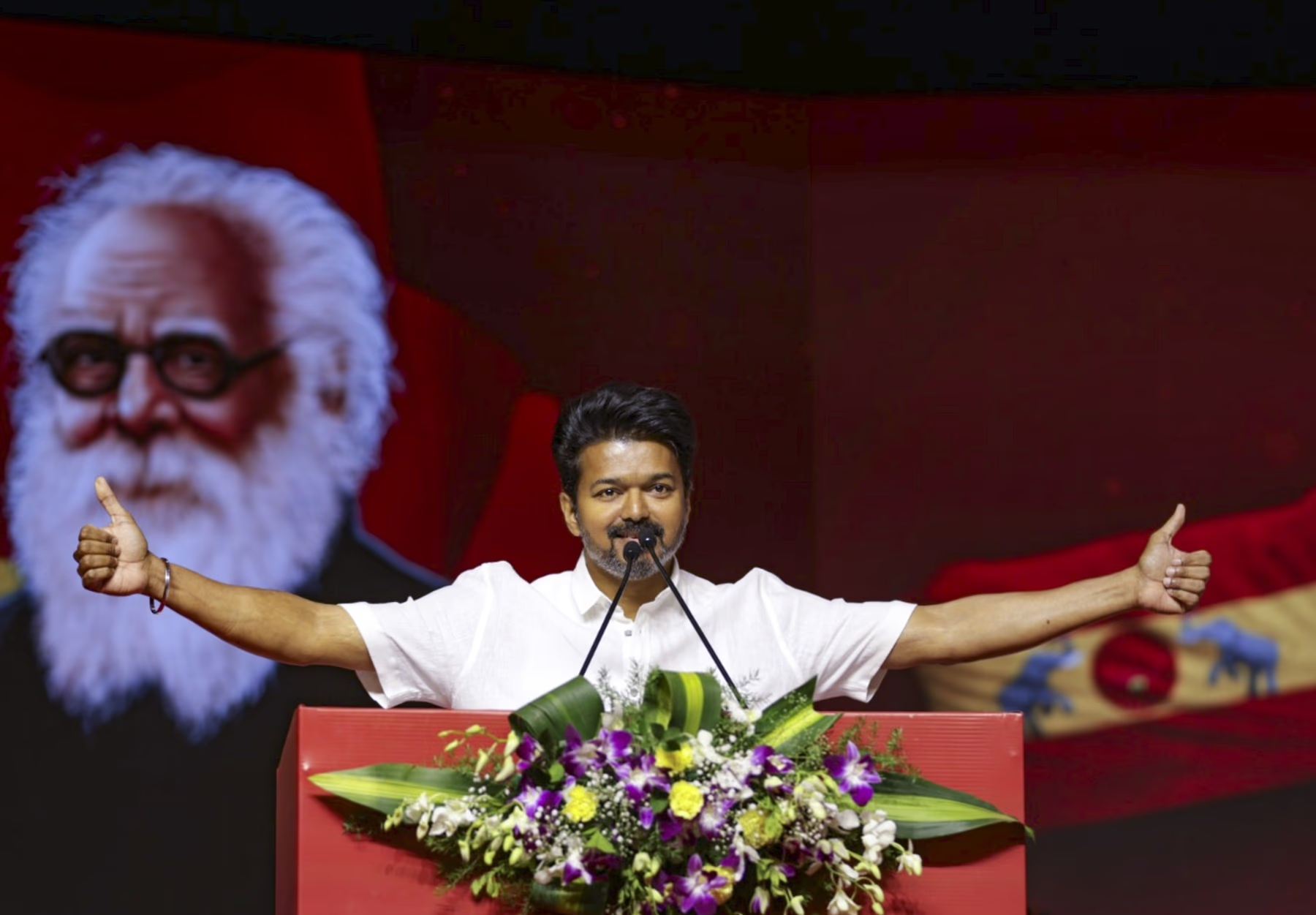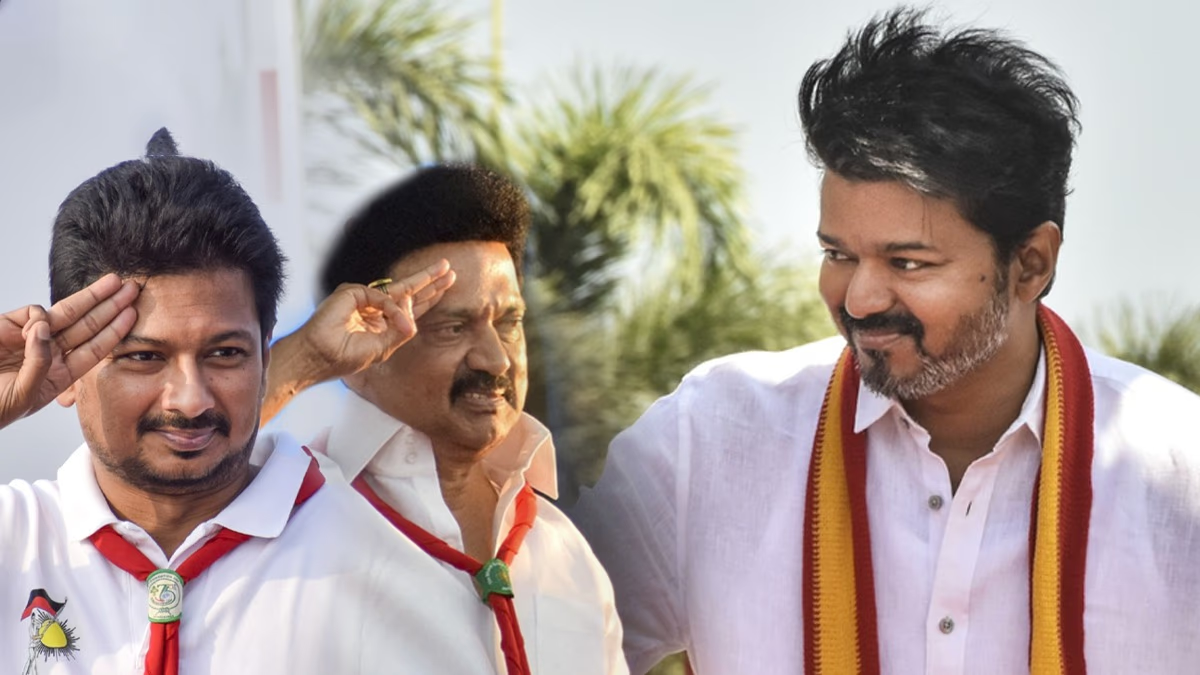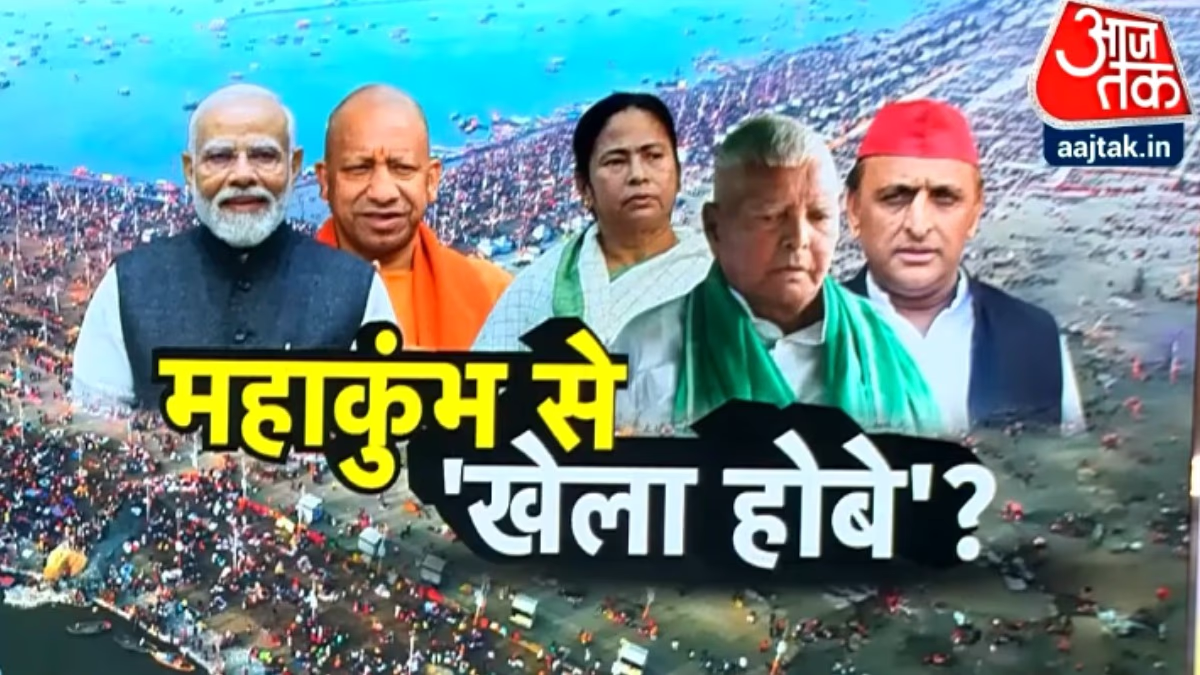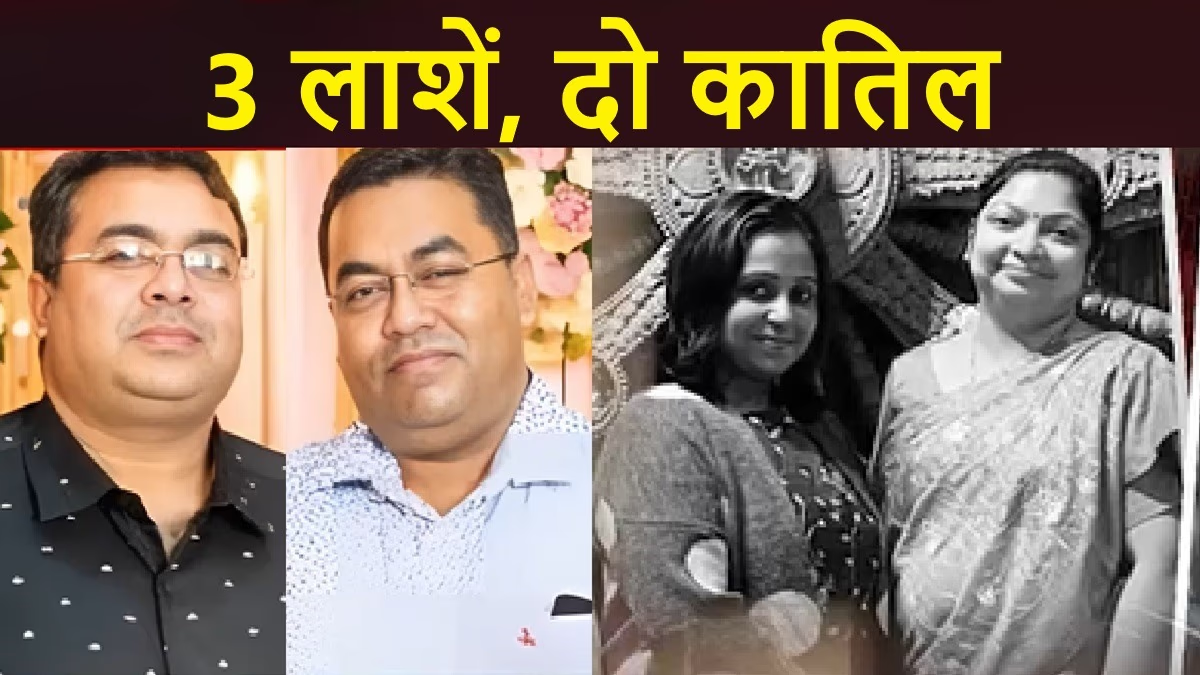Vijay Thalapathy, a prominent figure in South Indian stardom, has announced a complete departure from films. On February 26, during the anniversary of his political party, Tamilaga Vettri Kazhagam, he declared his full dedication to politics. This announcement, made just a year before the Tamil Nadu assembly elections, has sent ripples through the political landscape of Tamil Nadu. At 50, Vijay Thalapathy's foray presents a challenge to the seasoned political veterans entrenched in the state's politics.
This challenge is particularly aimed at the ruling DMK leadership, which will soon seek votes in the 2026 elections. Since coming to power in 2021 under the leadership of MK Stalin after a decade-long gap, the DMK hasn't faced any significant opposition in the state.
AIADMK, following the demise of their charismatic leader and former Chief Minister Jayalalithaa, appears lackluster. Former CM Edappadi K. Palaniswami may be leading AIADMK, but the party failed to secure a single seat out of 39 in the last Lok Sabha elections.
Under Annamalai's leadership, BJP is making assertive and energetic efforts in Tamil Nadu, yet these endeavors haven’t translated into electoral success. In the 2024 Lok Sabha elections, BJP didn't manage to win a single seat in Tamil Nadu.
Vijay Thalapathy Plants Thorns in DMK's Path
Being in power for five years, the anti-incumbency factor might work against the DMK. In such a scenario, Vijay Thalapathy's announcement of retiring from the silver screen to fully commit to politics and contest elections poses a significant hurdle for the DMK.
Publicly, Stalin hasn't shown any signs of worry about Vijay's political entry. However, Udhayanidhi Stalin, last year, extended a warm greeting to Vijay, calling him a "dear friend" and wishing him success for his inaugural rally. While it seemed like a cordial gesture, it might also have been a strategic political maneuver.
The tremendous popularity of Vijay, especially among the youth and his fervent fans, could impact the DMK's voter base. As the leader of the DMK's youth wing, Udhayanidhi is already striving to captivate young voters, and Vijay's entry could be a direct challenge to him, since both are appealing to the youth demographic.
The seriousness of Vijay's electoral battle can be inferred from his decision to engage election strategist Prashant Kishor for assistance.
Vijay's Distance from Controversies like Sanatan
Notably, Vijay labeled BJP as an "ideological rival" during his rally, while keeping a distance from controversies such as opposing Sanatan, setting himself apart from the DMK. Thus, the North-South narrative remains an old but effective tactic for Stalin to counteract Vijay's ascent. It's worth mentioning that Udhayanidhi has previously compared Sanatan Dharm to diseases like dengue and malaria.

Source: aajtak
As one of Tamil cinema's biggest superstars, Vijay enjoys an immense fan base, particularly among youth and rural voters. His films consistently break box office records, and his fan clubs spread across Tamil Nadu provide him with a built-in grassroots network, ready to rival established political parties.
However, it's important to remember that the Stalin family has deep roots in politics, and the DMK's organizational structure is robust enough that it would be premature to label them "afraid." Yet, Vijay's entrance isn't something they can dismiss lightly, and the DMK will definitely be on alert.
The DMK is making efforts to captivate young voters through Udhayanidhi Stalin, but Vijay's charismatic and "Thalapathy" (Commander) persona might overshadow Udhayanidhi's attempts. His ability to rally disenchanted young voters—who often feel detached from traditional politics—might diminish the DMK's vote share.
In a recent move, to solidify Udhayanidhi's authority in Tamil Nadu politics, Stalin appointed him Deputy CM within his government. But while Udhayanidhi is the grandson of Dravidian political patriarch Karunanidhi and CM Stalin's son, Vijay's star power is no less compelling.
Silver Screen Heroes Adored as Real Life Icons
In Tamil Nadu, where film stars achieve cult status and are beloved to the extent of being worshipped as real-life heroes, the passion for cinematic idols runs deep. This is the same Tamil Nadu where former stars like M.G. Ramachandran, M. Karunanidhi, and J. Jayalalithaa ascended to chief ministership. While actors such as Kamal Haasan and Rajinikanth have not had notable political success, their followings remain vast, in the millions.
Is the North vs. South Issue a Strategy to Divert from Anti-Incumbency?
Recently concluded Lok Sabha elections saw DMK achieving overwhelming electoral success in Tamil Nadu. All 39 out of 39 seats fell into the hands of the INDIA bloc. DMK is determined to maintain this political dominance at any cost.
However, when it comes to electoral battles, DMK isn't entirely complacent. Concerns such as anti-incumbency, Vijay Thalapathy's entry, and BJP's assertiveness under Annamalai's leadership are factors that have Stalin raising issues with intense emotional appeal in southern politics.
These issues revolve around linguistic identity, imposition of Hindi, the NEET examination, Tamil pride, Dravidian politics' dominance over North-centric politics (demarcation), and more. Such social and political concerns have always been sensitive in Tamil Nadu, often encapsulating the North vs. South dynamic and remained central to its politics.
DMK has frequently used these narratives against the central BJP government. As elections near, DMK is strategically bringing these issues back into the public sphere.
Language, Demarcation Misleading, North as the Target, Power to be Preserved
Language remains an extremely sensitive issue in Tamil Nadu. Stalin persistently argues that the central government intends to impose Hindi on Tamil people. Using this notion, he opposes the three-language policy, claiming Hindi has already erased the existence of many regional languages.
It's significant to note that Vijay hasn't directly allied with DMK concerning the language controversy. On this matter, Vijay has criticized both DMK and BJP, likening their bickering to childish squabbles typical of young school children.
Prior to the elections, Stalin has raised the demarcation issue, alleging that the central government wants to reduce Tamil Nadu's Lok Sabha seats from 39 to 31. Although Home Minister Amit Shah refuted this claim, Stalin remains unyielding. On March 5, he has called for a meeting of political parties in Tamil Nadu regarding this matter.
It's noteworthy that promoting the South vs. North agenda has been an integral aspect of DMK's policy. Former Tamil Nadu CM Karunanidhi strategically employed it as per convenience, using language, Dravidian culture, and India's federal structure as leverage to continually challenge the center.
Hence, it can be said that this strategy existed before Vijay's entry, but Stalin might sharpen the issue, misleading voters, and reaping electoral benefits.




